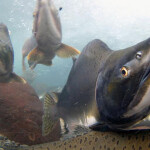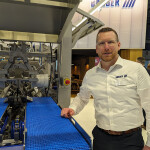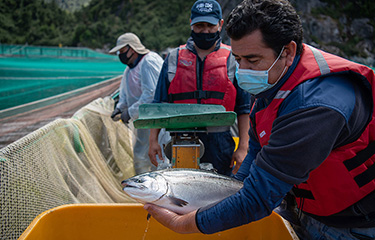Coho salmon is becoming a more popular option for Chile’s salmon-farming industry.
Because of a mucus coho naturally has on its skin, as well as stronger, tighter scales, it is typically immune to sea lice and the infectious salmon anemia (ISA) virus. Coho can also be harvested before Chile's summer, when the risk of algae blooms increases due to higher water temperatures. Chile’s salmon-farming industry has also pledged to reduce its overall use of antibiotics, and has done so in part through by limiting the time its fish is in its sea-based net-pen farms. Coho requires less time at sea, which is the period in the production cycle when the fish are most susceptible to disease.
Several companies in Chile are starting to capitalize on the benefits. While Atlantic salmon remains the primary species being farmed by most of Chile’s largest aquaculture firms, many are shifting some of their production over to coho. In 2019, Las Condes, Chile-based Blumar acquired coho specialist Salmones Ice Val for USD 51 million (EUR 46.1 million), adding five coho concessions and three processing plants to boost production of coho salmon by 7,000 metric tons (MT) a year. And Puerto Montt, Chile-based Salmones Camanchaca has shifted more of its production coho salmon in order to reduce its stock’s exposure to diseases including salmonid rickettsial septicaemia (SRS).
Salmones Aysén is the exception in Chile – a large salmon-farming firm fully committed to coho salmon. It ranks only behind AquaChile in its total production of coho, at around 45,000 MT whole-fish equivalent (WFE) annually.
Founded in 2006, Salmones Aysén began with two farming sites, producing 3,000 MT of coho annually. It now operates 10 sea-water farming sites, three fresh-water farming sites, and processing plants in Puerto Montt and Chiloé, according to Salmones Aysén Board Member Pablo Barahona, the eponymously named son of the company’s founder.
The company is named after the southern Chilean region of Aysén where the company started, but is based in Santiago. While most Atlantic salmon farmers have shifted some operations further south to colder waters where sea lice is less prevalent, Salmones Aysén has moved most of its operations to the Los Lagos Region, closer to Chile’s populations centers and the country’s major transportation infrastructure.
“It’s more efficient,” Barahona said during a trade mission visit from Pittsburgh, Pennsylvania, U.S.A.-based retailer Giant Eagle, in which SeafoodSource participated.
In 2022, the company …
Photo courtesy of Salmones Aysén








